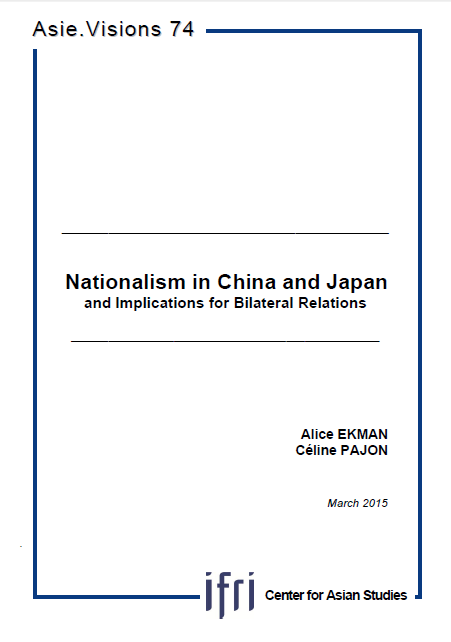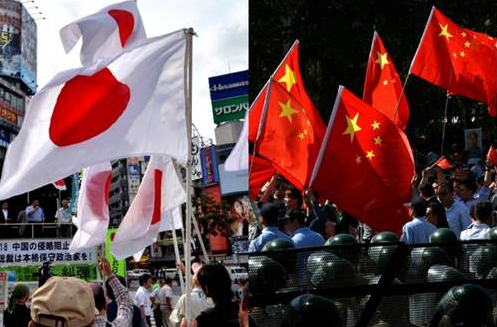Nationalism in China and Japan and Implications for Bilateral Relations

Nationalism appears to be an important part of the growing frictions between China and Japan.
In Japan, the return to power of Shinzo Abe as prime minister, and the historic breakthrough of an extreme right-wing party onto the political scene reinforce the view that there has been a clear shift to the right. Public opinion is today also more realistic about direct security threats to Japan.

However, this rise in neo-nationalism, which contains a clear anti-Chinese strain, should not be caricatured as aggressive militarism. Furthermore, it is strongly contained by democratic safeguards.
In China, the new leadership headed by Xi Jinping has promoted patriotic and nationalist ideas even more strongly than its predecessors, while still concentrating on the traditional aims of economic development and stability. Under these circumstances, the exploitation of anti-Japanese nationalism by the Party should not be overestimated: it is tolerated to a certain degree, but controlled and even repressed as soon as it risks getting out of hand.
Nationalism is thus one aspect, among others, of Chinese and Japanese foreign policy. Other key factors need to be taken into account, which may either moderate or exacerbate it. Measures controlling nationalism are in place, though they have shown themselves to be moderately effective in the face of the radicalization and sharpened sensitivity of public opinion. The acceleration of phases of nationalism along with provocations is coalescing with increasingly antagonistic views so as to reinforce security dilemmas. In fact, tensions today appear to be so strong that they have reached a point of no return. This makes it impossible to restore the status quo ante or to establish some form of reconciliation on new grounds.
Alice Ekman is a research fellow at the Center of Asian Studies (Ifri), and a China specialist. She is also teaching at Sciences Po Paris.
Céline Pajon is a research fellow at the Center of Asian Studies (Ifri), and a Japan specialist.
Download the full analysis
This page contains only a summary of our work. If you would like to have access to all the information from our research on the subject, you can download the full version in PDF format.
Nationalism in China and Japan and Implications for Bilateral Relations
Related centers and programs
Discover our other research centers and programsFind out more
Discover all our analyses
RAMSES 2024. A World to Be Remade
For its 42nd edition, RAMSES 2024 identifies three major challenges for 2024.
France and the Philippines should anchor their maritime partnership
With shared interests in promoting international law and sustainable development, France and the Philippines should strengthen their maritime cooperation in the Indo-Pacific. Through bilateral agreements, expanded joint exercises and the exchange of best practices, both nations can enhance maritime domain awareness, counter security threats and develop blue economy initiatives. This deeper collaboration would reinforce stability and environmental stewardship across the region.

The China-led AIIB, a geopolitical tool?
The establishment of the Asian Infrastructure Investment Bank (AIIB) in 2016, on a Chinese initiative, constituted an attempt to bridge the gap in infrastructure financing in Asia. However, it was also perceived in the West as a potential vehicle for China’s geostrategic agendas, fueling the suspicion that the institution might compete rather than align with existing multilateral development banks (MDBs) and impose its own standards.
Jammu and Kashmir in the Aftermath of August 2019
The abrogation of Article 370, which granted special status to the state of Jammu and Kashmir (J&K), has been on the agenda of the Bharatiya Janata Party (BJP) for many decades.










